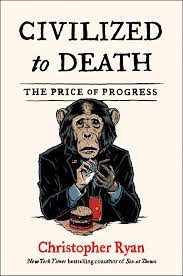We have five links this time. Please read on
The joys and benefits of bilingualism: Tobias Jones
https://www.theguardian.com/commentisfree/2018/jan/21/the-joys-and-benefits-of-bilingualism
This is a strong case for bilingualism. A considerable number of Indians have grown up under the triple language formula. If you go back to a generation when we had no widespread English medium education, most of us learned everything in the vernacular medium, at least in school, and switched to English in college. However, today there is such a craze for English language medium schools as people consider the knowledge of English as a passport to successful life and career. Despite the triple language formula, many new-generation kids neglect their mother tongue and are happy with only English. There was a time when people thought that children would be able to master only one language. But today, some of the most recent research points to the multiple benefits of bilingualism. It helps everyone if they can handle at least two languages fluently, and if one has good command over her mother tongue, it helps them tremendously to master English too. A new language gives a new perspective. As the author of this beautiful essay concludes, “ In another language, you don’t just learn new words or sounds, but new notions. It’s like putting on different spectacles and seeing the world with different eyes. You gain a different perspective, and sometimes, if you’re lucky, you become more, rather than less, eloquent.”
Negative capability: How to embrace intellectual uncertainty by Anne-Laure Le Cunff
https://nesslabs.com/negative-capability
Certainty is something we all like. However, when it comes to intellectual life, certainty can be counterproductive. A certainty in everything we believe and understand can adversely affect our capacity for curiosity and ability to learn. John Keats defined negative capability as “when a man is capable of being in uncertainties, mysteries, doubts, without any irritable reaching after fact and reason.” Along with enhancing our curiosity and creativity, negative capability keep us humble and free from intellectual arrogance. Only when we learn more do we realize our level of ignorance. The author cites some basic principles in developing a negative capability. They include embracing our ignorance, sitting with our doubts, and questioning our assumptions. In this information age, while falling into an illusion of knowledge is easy, we must develop an open mind toward what we know and do not know.
The happiness ruse by Cody Delistraty
lhttps://aeon.co/essays/how-did-being-happy-become-a-matter-of-relentless-competitive-work
The pursuit of happiness has been the favorite goal of people of all time. This has led to a situation where life’s single most important purpose is to attain happiness, and we must avoid sadness at any cost. People are forced to chase one experience after another, and at the end of the day, happiness is made out to be something like collecting shells on a beach, even as waves wash it away. On the other hand, sadness or unhappiness becomes something to be chased away. There is another healthy way to look at life. This is something stoics also taught us. In that view, happiness is not something actively pursued or sadness to be actively avoided. The contended life is one in which we embrace our sadness and negative feelings too. In that view, sadness is a sharpening emotion that makes us persistent and hardworking. Ultimately it becomes a life where we enjoy the process, its ups, and downs, and not tie all sense of happiness to the outcome or an end goal. Contentment brings us more joy than a Sisyphean pursuit of happiness.
Why Smart People Believe Stupid Things by Gurwinder
https://gurwinder.substack.com/p/why-smart-people-hold-stupid-beliefs
Does intelligence always help us to arrive at the objective truth? Are intelligent people free from ideological biases compared to less educated people? Strangely the answer is that smart people are more prone to such biases, and smartness is no guarantee that you will always arrive at the most rational response to any situation. As the author says, the intelligence with which the agent pursues its goal is no guarantee that the goal itself is intelligent. We must also bear in mind that human intelligence is evolved less as a tool for seeking objective truth than as a tool for pursuing personal well-being and social status. Thus people tend to believe more in things they want to believe than what is actually true. If intelligence does not help us much to escape our biases, what can help us to achieve that? The author mentions two things: curiosity and humility. Our ego can be the greatest hindrance in arriving at the truth. The author put it brilliantly “Being curious makes us humble because it shows us how little we know, and in turn, being humble makes us curious because it helps us acknowledge that we need to learn more.” What is important is knowing the truth and not winning arguments.
The erosion of deep literacy by Adam Garfinkle
https://nationalaffairs.com/publications/detail/the-erosion-of-deep-literacy
This long essay examines how new media devices have changed how we read, write and think. The argument is that our continuous exposure to these media has affected our capacity for deep literacy. One definition of deep literacy is this. Deep literacy is what happens when a reader engages with an extended piece of writing in such a way as to anticipate an author’s direction and meaning and engages what one already knows in a dialectical process with the text. According to the author, deep literacy has wondrous effects, nurturing our capacity for abstract thought, enabling us to pose and answer difficult questions, empowering our creativity and imagination, and refining our capacity for empathy. The essay tells that compared to all ages in the past, today, our brains are forced to sort, categorize, parse, and prioritize torrential data streams it never evolved to juggle. Also, once we lose our ability for deep literacy, we lose our ability to think, imagine and create. When digital devices hijack our attention, we lose our ability to perceive the world in its fullness. With multiple screens right in front of us, we move from one novelty to the other and find it difficult to concentrate on a long text which requires a deeper level of concentration. An extremely timely essay inviting our attention to where digital technologies are taking us.




No Comments